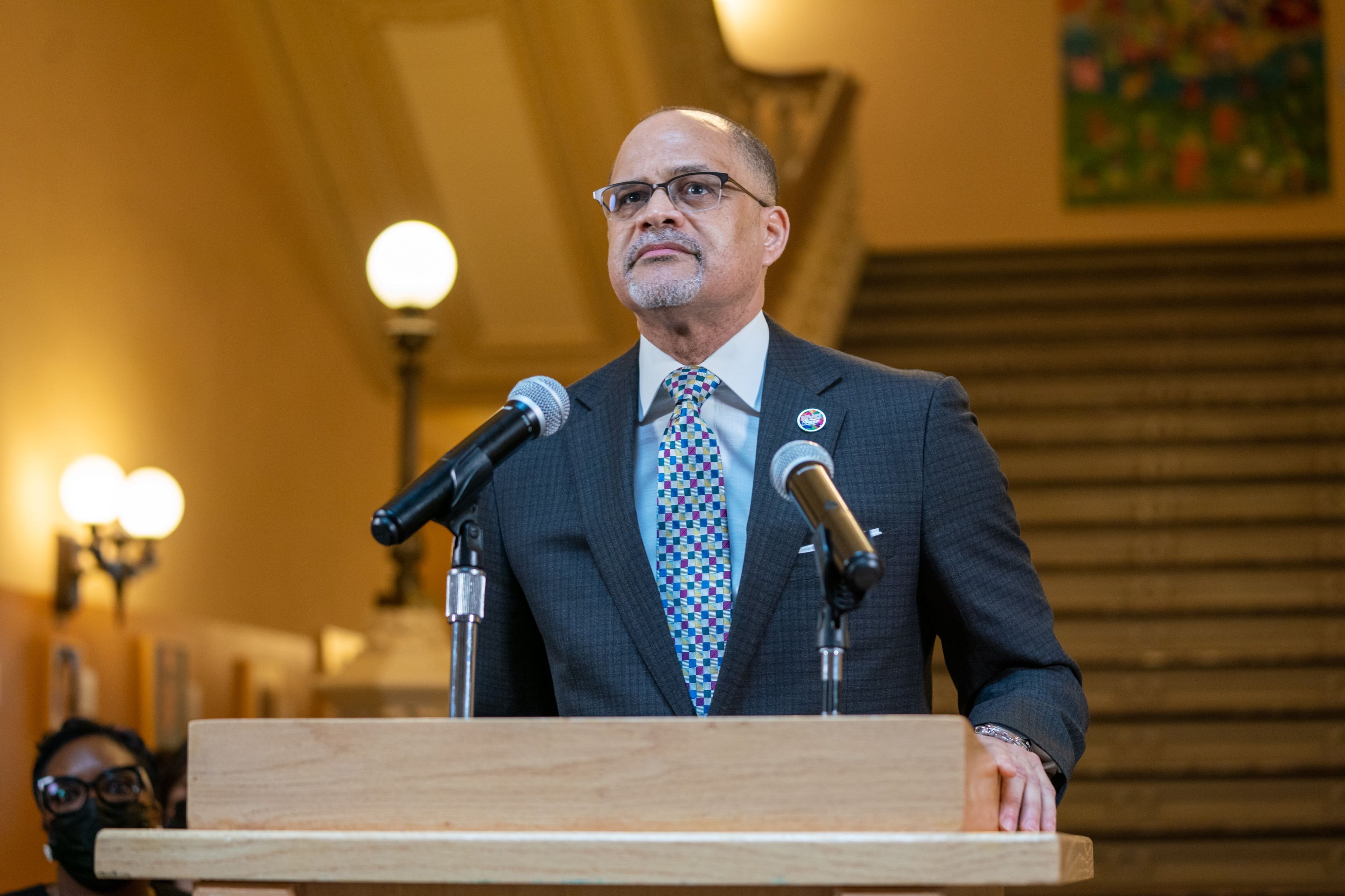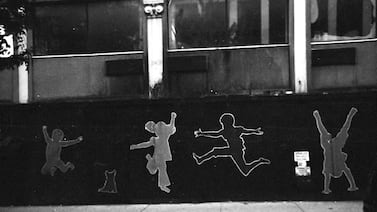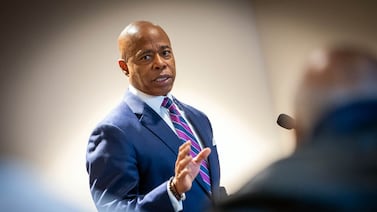Despite New York City’s looming high school application deadline, last-minute changes might be on the horizon, schools Chancellor David Banks suggested Friday.
Banks has been listening to concerns from parents and elected officials about the new admissions process and could announce changes “very early next week, Monday or Tuesday, exactly what position we will take,” he said during a state hearing over mayoral control of city schools.
Every New York City public school student must apply to attend high school. They rank their top-12 high school programs and are eventually matched with a school. Banks noted that he’s up against a deadline: Applications are due March 11. Any new changes to the labyrinthine admissions process stand to cause panic among families who have navigated the new system and have already submitted applications or have, at the least, decided which schools to rank.
Banks didn’t detail what changes he’s considering, but he noted that the process at some of the city’s coveted “screened” schools is a lottery this year — which has resulted in backlash from parents of students with high grades and been criticized for harming Asian American students.
“It’s a process that I kind of inherited as I got here, and I didn’t have a long time to fully absorb all of it,” Banks told state lawmakers. “And I know decisions had to be made for parents to know what’s going to be happening for next year ... And if there’s a change that’s going to be made, you’ll know about that over the next couple of days.”
Announced this winter, the process now includes a “centralized” screening rubric that schools can choose to use instead of creating their own admissions criteria. Schools can screen for grades from a student’s seventh and eighth grade years — whenever their marks are the highest. They cannot consider attendance or test scores, since last year’s state tests were opt-in and most students did not take them.
This year, students will be placed in four different groups based on how high their grades are. The education department will then run a lottery, beginning with the students with the highest marks.
While most high schools in New York City have no admissions criteria, about 100 screen for at least one program. Eight of the city’s prestigious specialized high schools admit students based on an exam. (A ninth specialized school for the arts uses auditions.)
Integration advocates welcomed the changes, but backlash stemmed from families of children with high grades about how students will be chosen.
At a Queens public meeting last month, department officials said they expect the new process to result in a 13% increase in offers made to Black and Latino students, who, along with English language learners, students with disabilities, and low-income students, are underrepresented at many of the city’s most competitive schools
Vocal parents have complained that the new model doesn’t acknowledge the hard work of students with top grades, and that the rigor of instruction will be watered down if students with a greater range of academic achievement are admitted to the city’s most competitive schools.
Felicia Wilson, a parent in Morris Park in the Bronx, hasn’t been very concerned about the new lottery system because there aren’t as many screened schools in the Bronx as other boroughs. She’s not sure she wants her son traveling very far because she’s worried about his safety, so Wilson said she would like to see more screened schools in her borough.
The biggest obstacle in the process, she said, has been simply trying to find information about schools near her. Wilson started a Facebook group just for Bronx parents weighing their high school options, but said it would be more helpful if the city centralized information, such as when campuses host open houses.
“If you are a parent who is in the Bronx, a lot of the schools that are here are not being talked about in those groups, and a lot of the schools that are also being talked about tend to be the schools that are the screened schools — the schools that everybody is killing themselves to get into,” she said. “If you’re a Bronx parent, a lot of the things that they’re talking about may not apply to you.”
Francine Almash, a member of the Citywide Council on High Schools, an education department advisory group, said she has been dismayed by debate around the lottery system. She said it has taken focus away from how the process disadvantages certain students, including those who, like her own son, have a disability.
“I am of the camp that I thought the high school process was bad to begin with. I actually think the changes that we’re making are a move in the right direction,” she said. “I actually think there is a small number of parents making a lot of noise about this idea, that one of the things that’s happening is that we’re losing our ability to sort and segregate students the way we used to be able to.”
Reema Amin is a reporter covering New York City schools with a focus on state policy and English language learners. Contact Reema at ramin@chalkbeat.org.
Christina Veiga is a reporter covering New York City schools with a focus on school diversity and preschool. Contact Christina at cveiga@chalkbeat.org.








